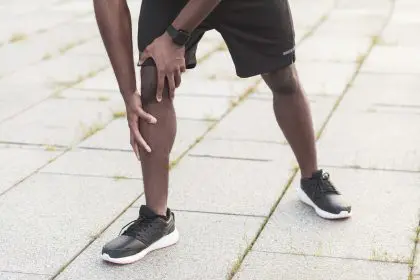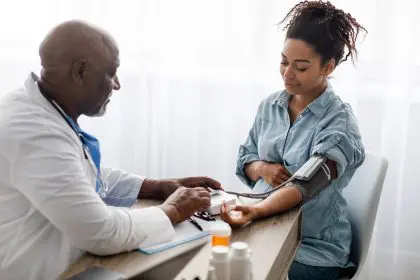Prioritizing our well-being requires a keen awareness of our body’s signals, especially when it comes to potential threats like high blood pressure. Often operating silently, hypertension serves as a precursor to severe health complications, with strokes topping the list. In this article, we embark on an exploration of the intricate connection between high blood pressure and strokes, unraveling the enigma that surrounds these intertwined health concerns. Within the folds of this discussion lie five distinct warning signs, messages your body might be urgently communicating. Recognizing and comprehending these signals stand as pivotal actions in averting a life-threatening event.
The silent threat
High blood pressure is often referred to as the “silent killer” because it may not exhibit noticeable symptoms until it reaches a critical stage. However, it significantly increases the risk of various cardiovascular problems, with strokes being one of the most severe consequences.
Warning signs to watch for
1. Sudden and severe headache
One of the warning signs that your body may be signaling a stroke related to high blood pressure is a sudden and intense headache. If you experience an abrupt onset of severe head pain — especially if it is accompanied by dizziness or nausea — it’s crucial not to ignore it. Seek medical attention promptly.
2. Vision disturbances
High blood pressure can impact the blood vessels in your eyes, leading to vision problems. If you notice sudden changes in your vision — such as blurry vision, double vision, or even temporary loss of sight — it could be an indication that your blood pressure is causing damage. Consult an eye care professional and your doctor immediately.
3. Numbness or weakness on one side of the body
A stroke can cause sudden numbness or weakness, typically on one side of the body. If you experience a sudden inability to move your arm, leg or face on one side, it could be a sign of a stroke. Don’t dismiss these symptoms; call for emergency help without delay.
4. Difficulty speaking or confusion
High blood pressure can affect the blood supply to the brain, leading to cognitive issues. If you find yourself suddenly struggling to speak, slurring your words or experiencing confusion, it’s crucial to recognize these signs as potential indicators of a stroke. Seek medical attention immediately.
5. Trouble walking and lack of coordination
Another warning sign of a stroke related to high blood pressure is difficulty walking or a sudden lack of coordination. If you feel unsteady on your feet, have trouble maintaining balance or experience sudden clumsiness, it’s important to treat these symptoms seriously and seek medical help promptly.
The importance of tuning in to your body cannot be overstated, particularly in the realm of health management, where high blood pressure holds a potential connection to strokes. Swift action and a deep understanding of warning signs emerge as vital tools in preventing dire consequences. Should you recognize any symptoms mentioned, prompt medical attention becomes non-negotiable. Consistent monitoring of your blood pressure — coupled with a commitment to a healthy lifestyle — forms a robust defense against the risks posed by hypertension.
It is crucial to emphasize that your body communicates with you, and attentiveness to these signals is paramount. By prioritizing regular health checkups, adopting a heart-healthy lifestyle and swiftly addressing any abnormalities, you empower yourself to proactively mitigate the threats associated with high blood pressure. In this ongoing dialogue between you and your body, each attentive step you take plays a crucial role in securing a healthier, more resilient future. Remember, your well-being is a conversation worth investing in.
This story was created using AI technology.













